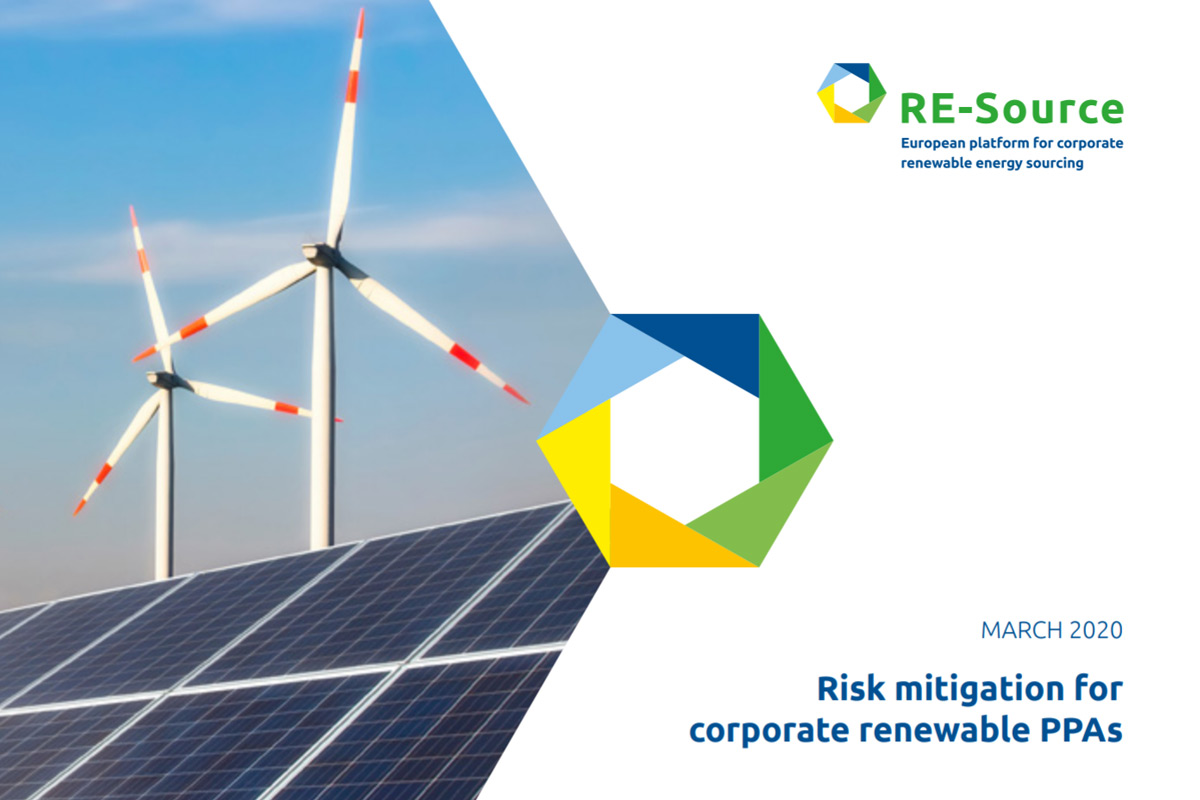30 March 2020
How can corporates minimise risks and maximise opportunities when entering renewable PPAs?

There are many variables at work in PPAs, and it’s easy to get lost in all the information out there. The new report from the RE-Source Platform, Risk Mitigation for corporate renewable PPAs, is designed for maximum clarity: one by one, we break down the various risks for corporates entering PPAs – and outline the best ways to mitigate them.
We sat down with analyst Guy Brindley for a Q&A on the key take-aways you need to know from the report.
Q1. Your new report is designed to tell corporates all they need to know to mitigate risks when entering renewable Power Purchase Agreements. Why exactly is it important now that corporates, in particular, understand this information?
Well, we aim to provide corporates new to corporate sourcing some background on the risks which they need to understand when considering entering a long-term Power Purchase Agreement. There is a lot to learn but we hope this helps to set them on their way.
Corporate renewable PPAs are taking off in Europe; climate change is being taken seriously, not just by governments around the world but by the everyday consumer. This is driving demand for greener products. Corporates that show they take climate change, the environment and sustainability seriously will gain an advantage with these consumers. And that’s not even considering that most corporates are actually entering these deals because it is possible to reduce electricity costs and variability. So the reasons for the increased take up of renewable PPAs by corporates are clear.
But whereas utilities (who have traditionally entered these kinds of deals) have the expertise and experience to manage the risks, corporates need to understand risks which usually have nothing to do with their usual business.
Q2. The report outlines that the risks associated with a renewable electricity supply are significantly different to the risks involved with a conventional electricity supply. Why is this?
Yes indeed, conventional power plants produce a stable output which generally matches demand fairly closely and with a cost that is highly dependent on the cost of fuel they use. Renewable power plants have zero cost for fuel (which is obviously great!) but only produce when that resource is available, i.e. when the sun shines or the wind blows. This means that the production is variable, and this creates different risks. But there are ways of mitigating these risks – and that is exactly what this report is about.
Q3. Can you give us some examples of the risks you discuss in the report?
Mitigating price risk with energy trading and volume risk with a Volume Firming Agreement are two examples that are in the report. But there is no one-size-fits-all model; corporates will need to assess which risks they can or should own and which they should transfer.
I’d also like to say that this report is not a ‘complete’ document. It’s an ongoing project which we’ll be adding to and developing with the help of our readers and those involved with the RE-Source Platform. In fact, we already have some additional risk mitigating products in the pipeline to add.
Q4. Looking forward, what can we expect from the RE-Source Platform?
Well corporate sourcing of renewable electricity is going to be an essential part of the transition to a low-carbon society. Hopefully the European Commission’s Green Deal is going to provide the framework for a boom in renewables. The RE-Source platform will continue to grow in scope and ambition to help corporates take advantage of and contribute to this growth. In fact, in parallel with our toolkit and advocacy work, our annual RE-Source event in Amsterdam has also been growing year by year and is a great meeting point for everyone involved in corporate renewable sourcing. It’s a great couple of days! I’m already really looking forward to this year’s gathering in Amsterdam on 9-11 December.

